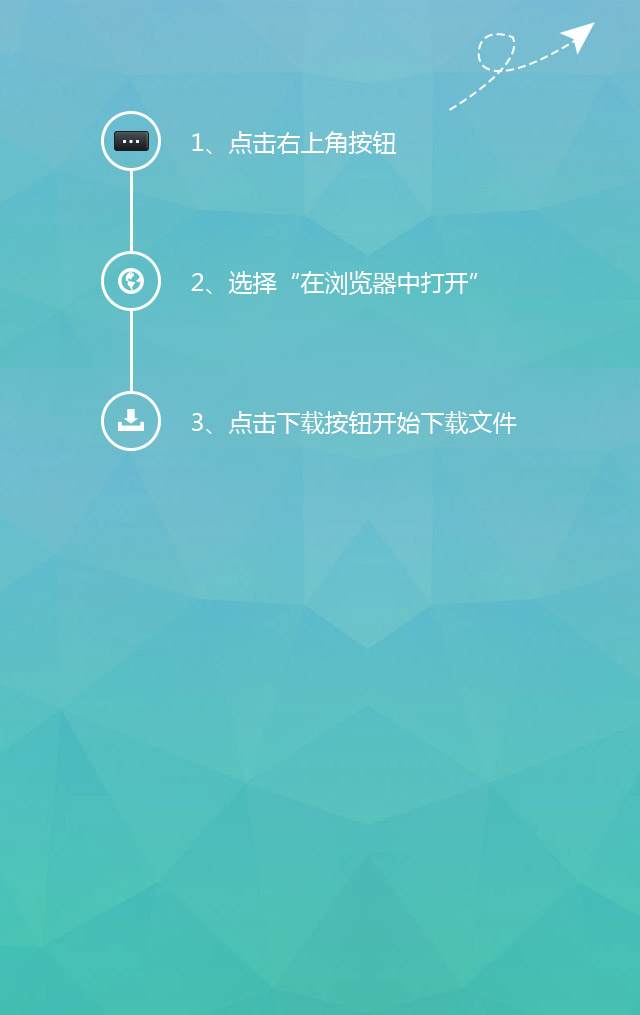第24课:饯行聚会《走遍美国》
第24课:饯行聚会《走遍美国》
ACT 1-1 “我想这样或许是可行的。”
【故事梗概】
Robbie刚放学回来。Robbie和Ellen谈起了Alexandra就要回国的事情。Ellen建议在家里为Alexandra举办一个饯行晚会。
Robbie: Hi, Mom.
Ellen: Hi, Robbie. You're home from school early.
Robbie: Yeah, they're getting the assembly hall ready for the graduation ceremony, so we all got to go home early. Too noisy to study.
Ellen: Well, now that you're here, you can help me with dinner. I need those potatoes peeled and sliced.
Robbie: Mom, give me a break. Alexandra's coming over to help me study for my math final.
Ellen: Well, in that case, you can wash the dishes and clean up after dinner.
Robbie: Can I invite Alexandra to stay for dinner?
Ellen: Of course.
Robbie: Thanks, Mom.
Ellen: You and Alexandra have become good friends, haven't you?
Robbie: Yes. I like her. She's a terrific person. I'm going to miss her when she goes back to Greece.
Ellen: Would you like to give her a little farewell party?
Robbie: Mom, that would be terrific! Maybe we could make it a surprise.
Ellen: Oh, I don't know. Surprise parties don't always work out.
Robbie: Well, we could tell her it's a graduation party for me. When Alexandra arrives, we'll surprise her.
Ellen: Well, I suppose that might work.
【语言点精讲】
1. Yeah, they're getting the assembly hall ready for the graduation ceremony, so we all got to go home early. Too noisy to study.
是的,他们在收拾大礼堂,给毕业典礼作准备,所以我们都得早回家了。太吵了,没有法子学习。
assembly hall: 大礼堂。
graduation ceremony: 一般指中学毕业典礼。大学毕业典礼在英国也这样说,但在美国则称为commencement,意谓学生从此将步入社会,开始人生的旅途。commence是“开始”之意。
too…to…: 太……以致于不能……
2. I need those potatoes peeled and sliced.
我需要把那些土豆削皮,切成片。
peel: 剥皮。
sliced: 切片。
3. Mom, give me a break. Alexandra's coming over to help me study for my math final.
妈妈,让我歇口气吧。Alexandra要来帮助我学习数学,准备期末考试。
give me a break. : 让我喘口气;让我歇一会儿。
final: 这里指的是final examination,期末考试。
4. Well, in that case, you can wash the dishes and clean up after dinner.
哦,那样的话,你可以在晚饭后洗盘子和收拾桌子。
in that case: 既然如此,既然这样。
5. Would you like to give her a little farewell party?
你想不想给她举行一个小小的欢送会?
farewell party: 饯行晚会,欢送会。
6. Surprise parties don't always work out.
这种给人一个惊喜的晚会并不是每次都成功的。
work out: 在这里的意思是“成功,奏效”。
7. I suppose that might work.
我想这样或许是可行的。
这句话是由suppose引导的虚拟语气句。因为suppose表示主观的推测,后面从句中常用could, would, might等虚拟语态的词。
ACT 1-2 “我没有问题。”
【故事梗概】
Robbie想送给Alexandra一件离别礼物,但是他没有足够的钱。他想同父母借钱,Ellen表示同意,并让他去问Philip的意见。
Robbie: I'd like to give her a nice going-away present.
Ellen: Fine.
Robbie: There's only one problem.
Ellen: What's that?
Robbie: I'm broke. I should have saved some money.
Ellen: I'm sure Alexandra would be happy with something simple, Robbie.
Robbie: I know. But, well, I'd like to give her something nice to remember me by. Maybe I could borrow some money from you and Dad.
Ellen: It's all right with me if it's all right with your dad.
Robbie: Thanks, Mom. I'll talk to him. Is he still in his office?
Ellen: I think so.
Robbie: Thanks, Mom. [He starts to leave.]
Ellen: [She kisses him.] Robbie! Good luck!
[In Dr. Stewart's office at the hospital. Philip is looking at a patient's chart as the nurse, Molly Baker, enters.]
Molly: Here are the X-rays you wanted, Dr. Stewart.
Philip: Oh. Thank you, Molly. Now, let me check them.
Molly: What do you think?
Philip: I don't see any breaks or fractures. Well, well. Thank you, Molly.
Molly: Good. Thank you. [She leaves.]
【语言点精讲】
1. I'd like to give her a nice going-away present.
我很想给她一件漂亮的离别礼物。
a going-away present: 离别礼物。
2. I'm broke. I should have saved some money.
I'm broke. : 我身无分文。注意这里只能说broke,而不能说broken.
I should have saved: 我早该存些钱的,但是实际上没有存。“should have +过去分词”这一结构用来表示遗憾,为过去该做而未做的事而后悔。例如:
I should have repaired the oil leak in my car; the engine is ruined! (I didn't repair it)
I should have taken the job I was offered with the insurance company. (I didn't take it.)
I should have taken some accounting courses in college. (I didn't take any at all)
3. I'm sure Alexandra would be happy with something simple.
我确信Alexandra得到一件简单的礼物就会很高兴的。
4. But , well, I'd like to give her something nice to remember me by.
可是,嗯,我想给她一件漂亮的礼物作为纪念物,让她看见就想起我来。
to remember me by : 让她看到东西就想起我来,睹物思(人)。
5. It's all right with me if it's all right with your dad.
如果你爸爸答应的话,我没有问题。
It's all right with me: 我没有意见,这样做我不反对。也可说It's OK with me.
6. Philip is looking at a patient's chart as the nurse, Molly Baker, enters.
护士Molly Baker进来时,Philip正在看一个病人的体温图表。
a patient's chart: 指病人床脚挂的体温曲线表。一般的名单叫list,有纵横几栏的表格叫table,有曲线或图解的图表叫chart, graph或diagram。
ACT 1-3 “谁手头不紧啊?”
【故事梗概】
Robbie走进了Philip的办公室。他开始和Philip讲借钱的事情。
Philip: Come in! Hi, Son.
Robbie: Hi, Dad. Am I interrupting you?
Philip: No, no, no, no. What's up?
Robbie: Can we talk?
Philip: Sure.
Robbie: I need some help.
Philip: Well, that's what fathers are for.
Robbie: Well, before I go to college, I have the whole summer…
Philip: Yes…
Robbie: And I'm planning to get a job for the summer.
Philip: And what sort of job?
Robbie: I applied for a job as a lifeguard at the community pool.
Philip: Sounds pretty good.
Robbie: Yes. I'll be earning pretty good money if I get it. But right now, I'm kind of short of cash.
Philip: [He laughs.] Who isn't?
Robbie: And my friend Alexandra is going back to Greece…
Philip: Nice girl. We'll all miss her.
Robbie: Mom says we can give her a going-away surprise party.
Philip: Good idea.
【语言点精讲】
1. Am I interrupting you?
我有没有打扰到你?
2. Well, that's what fathers are for.
嗯,这正是父亲所该做的。
be for表示“供某种用途的”。又例如:If you have any questions, just ask me. After all, what are teachers for?
3. I applied for a job as a lifeguard at the community pool.
我报名在社区的游泳池当救生员。
apply for: 申请,请求。
lifeguard: 救生员。
4. Sounds pretty good.
听起来很不错。
pretty: 在美语中常用作加强语气的词,修饰形容词或副词,略相当于quite, rather,或轻度的very。如:pretty certain/strange/ridiculous/awful等。
5. Yes. I'll be earning pretty good money if I get it. But right now, I'm kind of short of cash.
如果我能得到这工作,就会得到相当优厚的报酬。可是眼下我手头很紧。
I'm kind of short of cash. : 我手头很紧。相当于 “I don't have enough money.” “kind of” 在这里表示“似乎,有些”等模糊的意思,用来缓和语气。
6. Who isn't?
这里指“谁手头不紧啊?”
“Who isn’t?”常用于生动诙谐地表示“大家彼此彼此,我也一样”。
ACT 1-4 “你真够意思,爸爸。”
【故事梗概】
Philip 同意借给Robbie钱来给Alexandra买礼物,还同意在送别晚会之后借给Robbie使用家里的汽车去送Alexandra回家。
Robbie: And I'd like to get her a nice gift…
Philip: What did you have in mind?
Robbie: Well, a wristwatch, so she'll think of me when she looks at the time. Nothing flashy or expensive. Something simple -- but a good one.
PhiliP: Sounds fine, Robbie.
Robbie: Well, I saw a nice watch. But I'll need a loan. If you could lend me the money, I could pay you back out of my lifeguard salary.
Philip: Well. I guess your mother and I can manage it. When do you need the money?
Robbie: Would tomorrow be OK?
Philip: You've got it.
Robbie: Thanks, Dad.
Philip: My pleasure, Son. Oh, and, Robbie…
Robbie: Yes?
Philip: You'll probably want the family car so you can drive her home after the party.
Robbie: Could I?
Philip: If you drive carefully.
Robbie: I will. Thanks, Dad.
Philip: My pleasure.
Robbie: You're OK, Dad.
Philip: [He pats him on the shoulder.] You're not so bad yourself, Son.
【语言点精讲】
1. What did you have in mind?
你想要什么?你心里想买什么?
2. Well, a wristwatch, so she'll think of me when she looks at the time. Nothing flashy or expensive. Something simple -- but a good one.
嗯,一块腕表,好让她在看时间时能想起我。不必是什么显眼的手表,也不用是阔气的,一块简单的手表,质量可是要好一些的。
wristwatch: 手表,腕表。
flashy: 光鲜的,俗丽的。
3. If you could lend me the money, I could pay you back out of my lifeguard salary.
如果你借给我这笔钱,我会从我当救生员的工资里还你的。
这个句子是个关于现在或将来虚拟语气的例子。在if从句中,情态动词用过去式,在主句中,动词原型前用would或者could,使用这种句式来预想现在或将来的情况。在这里,Robbie想着他父亲会借给他钱的。
4. I guess your mother and I can manage it.
我想我和你妈可以借给你这笔钱而不为难。
can manage (it): 设法帮这个忙。当然,作为医生的Philip是不可能为拿出一块手表的钱而发愁的。
5. Would tomorrow be OK?
明天可以吗?
6. You've got it.
没问题;就这样说定了。
这个表达用于答应给别人某物,带有爽快的劲头。
7. You're OK, Dad.
你真够意思,爸爸。
8. You're not so bad yourself.
你也不错。
这是一句客气话,在别人称赞你时用于回复。
ACT 2-1 “就这么约定了。”
【故事梗概】
当晚,Robbie和Alexandra 在学数学的时候,Robbie邀请Alexandra来参加晚会。Alexandra欣然接受邀请。
Alexandra: You're ready for the next problem?
Robbie: You know what? I can't look at another number. How about a lemonade break?
Alexandra: Sure.
Robbie: Oh, by the way, when is your plane reservation for your flight to Athens?
Alexandra: Sunday. Why?
Robbie: Would you be able to come over Saturday night?
Alexandra: Yes. I should be finished packing by then.
Robbie: My folks are giving me a little graduation party.
Alexandra: Terrific!
Robbie: I'll pick you up.
Alexandra: That isn't necessary.
Robbie: My dad's letting me borrow the car.
Alexandra: Oh, well, that would be very nice.
Robbie: About eight o'clock?
Alexandra: Eight o'clock is fine.
Robbie: Great! It's a date.
Alexandra: Who's going to be there?
Robbie: Just my friend Mike and a few kids from school.
Alexandra: I'm going to miss all of you. You've been like a second family to me.
Robbie: We're going to miss you.
Alexandra: Maybe you could come to visit me in Greece?
Robbie: I'm counting on it.
Alexandra: Wonderful!
【语言点精讲】
1. I can't look at another number. How about a lemonade break?
我实在没法子再算一个数目了,休息一下,喝点儿柠檬水好吗?
I can't look at another...: 干某一件事过久,感到腻烦时常这么说。
How about a lemonade break?: 一般办公场所有tea break或coffee break,孩子们更喜欢喝果汁,故说lemonade break。
2. Oh, by the way, when is your plane reservation for your flight to Athens?
噢,顺便问一句,你订的飞往雅典的航机是什么时候的?
by the way: 顺便问一句。表达一种临时想到、随便问一下的感觉。
flight: 飞机航班,班次。
3. Would you be able to come over Saturday night?
你星期六晚上能过来吗?
come over: 过来,顺便来访。
4. I should be finished packing by then.
到那时候我也该把行李收拾好了。
be finished是be+分词形容词,而不是被动式,表示状态,这里等于I've finished。用should表示情态“应该”,并带有虚拟意味,表示对将来的推测。
5. My folks are giving me a little graduation party.
我家里人准备给我举行一次小小的毕业聚会。
my folks: 我的父母,我的家人。
6. I'll pick you up.
我去接你。
pick sb. up: 开车去接某人。
7. It's a date.
就这么约定了。
类似的说法还有:
It's a promise.
It's a bargain.
It's a bet.
8. I'm going to miss all of you. You've been like a second family to me.
我会想念你们大家的,你们一直就像是我第二个家庭一样。
这是一句很煽情的、可以用于分别时候的表达。
9. I'm counting on it.
我指望着这件事。(我正想呢;我也指望有一天能去。)
count on: 盼望,指望,依靠。
ACT 2-2 “大家都是一样的。”
【故事梗概】
Alexandra问起了Robbie的毕业感受,并由此谈到了自己来美国后的感受。
Alexandra: Are you excited about graduating from high school?
Robbie: Sure… and a little scared.
Alexandra: Scared? Why?
Robbie: Aren't you a little scared?
Alexandra: I was when I first came to the United States. I'd never been away from home, and I didn't know what it would be like. But then I found out that people are the same everywhere once you get to know them.
Robbie: I'm glad I got to know you.
Alexandra: Thank you. I'm glad I got to know you -- and your family.
Robbie: Wouldn't it be nice if we could skip the examinations and get right to the graduation party?
Alexandra: It would be very nice. But that isn't the way it works. So… back to work.
[Later that night. Robbie and Ellen are saying good-bye to Alexandra.]
Alexandra: Good night, Robbie Good night, Mrs. Stewart. Thank you for dinner.
Ellen: Good night, Alexandra. Will you be all right?
Alexandra: Yes. The Molinas are waiting for me.
Robbie: Good night, Alexandra. I'll pick you up on Saturday night, OK?
Alexandra: Yes. Eight o'clock.
[A car horn heeps.]
Alexandra: I have to run. [She leaves.]
【语言点精讲】
1. Are you excited about graduating from high school?
你就要从中学毕业了,不感到激动吗?
be excited about: 为……感到激动。
2. Sure… and a little scared.
a little scared: 有些害怕。
3. I was when I first came to the United States. I'd never been away from home, and I didn't know what it would be like. But then I found out that people are the same everywhere once you get to know them.
我刚来到美国时是有点儿。我还从未离开过家,不知道情况会是怎样。可是后来我发现不论是哪里的人,你一旦认识了解了他们,大家都是一样的。
I was when…: 这是“I was a little scared when…”的简略。
be away from home: 离开家。
find out: 发现,弄明白。
4. Wouldn't it be nice if we could skip the examinations and get right to the graduation party?
要是我们能够跳过考试,直接开毕业聚会,该有多好?
这是一个表示现在或将来虚拟语气的句子。Robbie正想像没有任何考试,但实际上是躲不过这次考试的。
5. It would be very nice. But that isn't the way it works. So… back to work.
那会是很好的。可是现实并非如此,所以嘛……回头学习吧。
But that isn't the way it works.: 但是现实并非如此。
6. The Molinas are waiting for me.
Molinas夫妇在等着我。
the+姓氏复数表示某某姓氏一家人。
7. I have to run.
我得走了。相当于I have to leave immediately.
ACT 2-3 “你怎么啦?”
【故事梗概】
送走Alexandra之后,Robbie坐在沙发上发呆。Ellen和Robbie 聊起了即将和Alexandra分别的事。到了星期六,Robbie和他的朋友在为晚会做准备,这时,Alexandra打来了电话。
Ellen: Good night, Robbie. She's really a good friend, isn't she?
Robbie: Yeah.
Ellen: You are going to miss her.
Robbie: Am I going to miss her?
Ellen: That's what I said! You are going to miss her!
Robbie: I'm going to miss her, and my math teacher's going to miss her.
Ellen: Well, you can write to her.
Robbie: It's not the same.
[Saturday afternoon, Robbbie, Mike, Sandra, and Millie are decorating the living room for Alexandra's going-away party.]
Mike: How does that look, Rob?
Robbie: Great! Pass me the hammer.
Mike: You got it!
Sandra: You're sure Alexandra's going to be surprised?
Robbie: Absolutely. She has no idea that the party is in her honor.
Mike: Millie, did you bring the tapes for dancing?
Millie: They're in my bag.
Mike: What did you bring?
Millie: Some rock 'n' roll.
Robbie: Perfect! Alexandra will love it! I can't wait to see her face when she walks in here tonight.
Mike: What about the cake?
Robbie: My mom's decorating it right now.
Ellen: [She enters.] Robbie, there's a phone call for you. It's Alexandra. She sounds upset.
Robbie: OK. Thanks, Mom. I'll take it in there. [Robbie picks up the phone in the kitchen.] Hi, Alexandra. What? You what? Oh no!
【语言点精讲】
1. Pass me the hammer.
把榔头递给我。
把自己手头的东西递给别人称为pass。
2. You got it!
给你!
3. She has no idea that the party is in her honor.
她一点儿也不知道这聚会是为她举办的。
have no idea: 不知道,相当于don’t know.
be in one’s honor: 为了某人而……;为了向某人表示敬意而……
4. Some rock 'n' roll.
rock 'n' roll: 摇滚乐。摇滚乐是20世纪50年代开始在美国流行的一种音乐。它是从爵士乐(jazz)及蓝调(the blues)中发展而来的。(the blues是一种带有慢爵士乐节奏的伤感民歌)Chuck Berry、fats Domino和Little Richard等歌星是最早录制这种音乐的人。“摇滚乐之王”(the King of Rock 'n' Roll)Elvis Presley是第一个使摇滚乐走向全球的音乐家。他所录制的摇滚乐唱片一直名列最畅销唱片榜首,这些唱片全世界的销售量在十亿张以上。
摇滚乐曲常用作舞会音乐。这个短语的另一个拼法是rock-and-roll。
5. I can't wait to see her face when she walks in here tonight.
我迫不及待地想看到她今天晚上走进来时脸上的表情。
6. I'll take it in there.
我到那边接去。
7. What? You what? Oh no!
什么?你怎么啦?噢,不会吧!
这里连用了几个短句,语气很强烈,感情色彩很浓。What? You what? 表明了Robbie听到Alexandra讲的事情之后很震惊、难以置信的感情。Oh no! 则流露出了Robbie的失望。
ACT 3-1 “他们坚持要我留下来。”
【故事梗概】
Alexandra要提前回国了,送别晚会似乎是开不成了。正当Robbie的朋友在Robbie家里感到沮丧的时候,Robbie居然带Alexandra回来了。
Millie: How about some music?
Sandra: No, let's wait till Robbie gets back from the airport.
Millie: Did she say why she had to leave today?
Mike: She told Robbie that her flight tomorrow was canceled, so she had to take an earlier flight
today.
Millie: This is terrible.
Mike: Well, that must be him.
Sandra: Why is he blowing his horn like that?
Mike: I don't know. Maybe he's angry.
Sandra: Do you think we should take down the decorations? They'll just make him sad.
Mike: Too late now. We should have done it sooner. Oh, here he comes.
[Robbie enters.]
Mike: [to Robbie] Hi, How'd it go?
Robbie: OK, I guess. Especially when Alexandra gave me a surprise…
Mike: Yeah? What was it?
Robbie: This!
[Alexandra enters.]
Mike: Alexandra!
Sandra: Hi! What happened?
Alexandra: I called my parents from the airport. When I told them my friends were giving me a party, they insisted that I stay. So now I'm taking a flight on Monday instead.
Mike: That's great! Terrific!
【语言点精讲】
1. No, let's wait till Robbie gets back from the airport.
咱们等到Robbie从飞机场回来再说吧。
till: 到……时候为止。
2. Why is he blowing his horn like that?
他为什么这样一个劲儿地按喇叭?
blow horn: 这里指按汽车的喇叭。
3. Do you think we should take down the decorations? They'll just make him sad.
你们认为我们是不是该把装饰都拿下来?这些东西只会使他更伤心的。
4. Too late now. We should have done it sooner. Oh, here he comes.
现在太晚了,我们本该早点儿取下来的。
should have done sth.: 指本该做某事,但是实际上没有做。常含有指责或者后悔的语气。
5. How'd it go?
事情办得怎么样?
How'd it go? = How did it go?
6. When I told them my friends were giving me a party, they insisted that I stay. So mow I'm taking a flight on Monday instead.
当我告诉他们说我的朋友们要给我举行聚会时,他们坚持要我留下来,所以我现在准备改搭星期一的班机走。
They insisted that I stay.: 他们坚持让我留下来。在表示主观愿望的动词insist, order, command, demand, ask, recommend, suggest, propose等后面表示所希望做到的宾语从句中,动词用虚拟语态,其形式为should+动词原形(should可以省略)。
I'm taking a flight on Monday: 现在进行时常用来表达计划好的将要进行的动作。
instead: 是副词,表示改变了原先的计划,而代之以新的计划。
ACT 3-2 “为了永远的友谊。”
【故事梗概】
Alexandra在晚会上也送了Robbie一个礼物,居然也是一块手表,而且款式是和Robbie送她的一样。
Sandra: But how did you know the party was for you?
Alexandra: Well, Robbie told me when he gave me this.
[She shows everyone her new wristwatch.]
Sandra: Oh, it's so pretty!
Alexandra: It's lovely, Robbie.
Millie: All right! Now we can really start the party!
Alexandra: No. Would you mind? I'd like to say something first.
Philip: Hear, hear!
Alexandra: I would just like to thank all of you, my friends, who have made my stay in the United States so wonderful, and to Robbie and the Stewart family for opening their home to me.
Robbie: We should thank you. You're a real friend!
Alexandra: And I also have a little surprise for you, Robbie. A little going-away present. [She gives him a gift.]
Alexandra: Open it, please. I think you might be amused.
Robbie: OK. [He opens the gift. It is a wristwatch.] I can't believe it!
Alexandra: I guess we were thinking the same thought.
Robbie: You had it engraved!
Ellen: Read it, Robbie.
Robbie: “In friendship, always. Alexandra.”I knew we thought alike, but this is too much! Thank you. [He hugs her.]
Mike: All right! Let's have some music!
Robbie: [to Alexandra] Miss Pappas?
Alexandra: [to Robbie] Mr. Stewart…
Philip: [to Ellen] Mrs. Stewart, may I have this dance?
Ellen: My pleasure, Doctor.
[They all dance.]
【语言点精讲】
1. Would you mind? I'd like to say something first.
你们不介意吧?我想先说几句话。
Would you mind?: 你们不介意吧?回答礼貌的Would you mind? 时,如果你的意思是“同意,可以”,千万不要说Yes,而要说No,因为后者才是I wouldn't mind,而前者是I would mind = I object/I don't like it/I wish you wouldn't 等意思。
2. Hear, hear!
说吧,让我们听一听!
这是在会场上表示对别人的发言拥护或赞成时说的。
3. I would just like to thank all of you, my friends, who have made my stay in the United States so wonderful, and to Robbie and the Stewart family for opening their home to me.
我只想对你们大家都表示感谢,朋友们,是你们使得我在美国的生活如此丰富多采。我还要感谢Robbie和Stewart一家对我打开了他们家庭的大门。
4. I guess we were thinking the same thought.
我想我们两个人想到一块儿去了。
5. You had it engraved!
你还让人给它上面刻了字!
have sth. done: 这个句型的意思是你让别人为你做什么,而不是你自己做。
6. In friendship, always.
为了永远的友谊。
7. I knew we thought alike, but this is too much! Thank you.
我知道我们想的一样,可这太教人难以相信了,谢谢你。
we thought alike: 我们想的一样。
too much: 在这里是指“太难以置信了”。相当于difficult to believe; incredible.
8. Miss Pappas? -- Mr. Stewart.
这是比较正式的表示邀舞和应允的办法。
比较完整的说法看下面Philip和Ellen所说的:
Mrs. Stewart, may I have this dance? -- My pleasure, Doctor.
(Stewart夫人,我可以和你跳这个舞吗?-- 我的荣幸,医生。)
推荐
-

-

QQ空间
-

新浪微博
-

人人网
-

豆瓣

